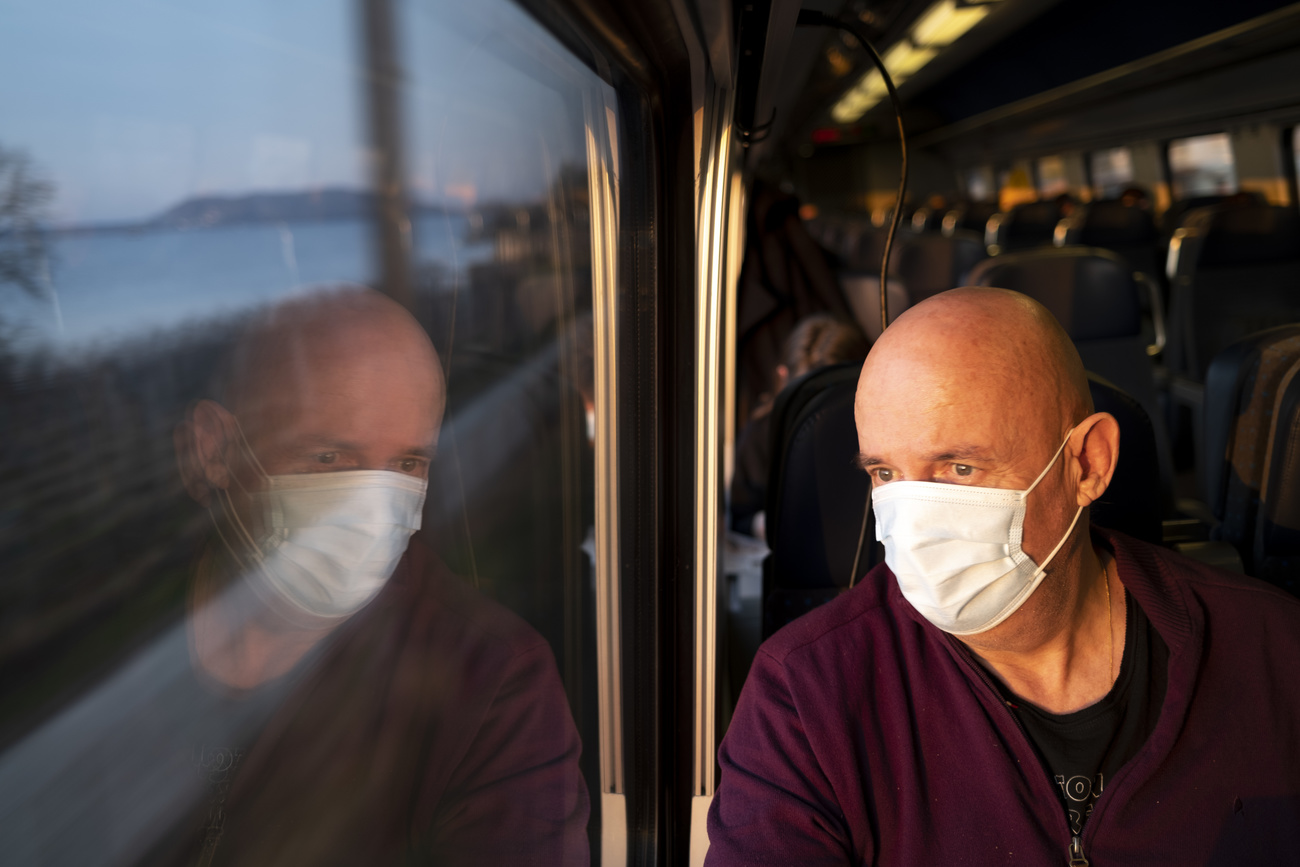
Switzerland to drop all remaining Covid restrictions

The last remaining public health measures to tackle Covid-19 in Switzerland will be lifted as of Friday April 1, the government has confirmed.
Concretely, this means that as of Friday, protective masks will no longer be mandatory on public transport and in healthcare facilities, and those who have caught the virus will no longer have to isolate for five days.
The “special” government powers in place since June 2020, which shifted a certain amount of competences from cantons to federal authorities in Bern, will also end on Friday, the government said, confirming a phase-out plan announced in February.
“We can’t say that the crisis is over, but we can certainly say that the acute phase of the crisis is over,” Interior Minister Alain Berset told journalists in Bern on Wednesday.
Berset, who has been the face of the government’s pandemic strategy over the past two years, said that despite a rise in Covid cases in March, the country was “very much on track”, with the situation in hospitals “stable”.
On Wednesday, 16,462 new cases of Covid were reported in the country; the numbers have gone down by 37% over the past week. Some 165 people were admitted to hospitals, where 17.4% of intensive care beds are currently occupied by Covid patients.

More
Coronavirus: the situation in Switzerland
Seasonal waves
The “very high immunity” among the population, achieved through vaccination or recovery from the virus, has helped to avoid an overcharge of the healthcare system, said Berset, who added that authorities expect to see “seasonal waves” of Covid in future.
To manage these waves, consultations between government and cantons are ongoing to plan the best division of responsibilities. Berset also repeated that enough vaccines have already been bought to cover the Swiss population in 2022 and 2023, if needed.
Cantons can also unilaterally decide to re-introduce or prolong measures phased out on the national level. For example, Bern, Geneva and Valais said on Wednesday that they would maintain the mask obligation in healthcare facilities, at least for now.
Since the start of the pandemic, 3.48 million people – or 41% of the population – have reported positive cases of Covid. Around 13,000 people have died.

In compliance with the JTI standards
More: SWI swissinfo.ch certified by the Journalism Trust Initiative




























You can find an overview of ongoing debates with our journalists here . Please join us!
If you want to start a conversation about a topic raised in this article or want to report factual errors, email us at english@swissinfo.ch.